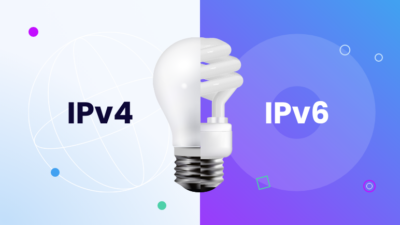Open Internet and IP Address Management
Embrace the Open Internet's principles and navigate the evolving landscape of IP address management. Discover how we're adapting to new realities at IPXO, empowering you with access to IP resources.

In the interconnectedness of the Internet, IP addresses are the fundamental threads that weave together all digital interactions. These unique identifiers underpin every online endeavor, enabling devices to communicate seamlessly across the globe.
Behind the scenes, the allocation and administration of these invaluable resources are managed by five Regional Internet Registries (RIRs) – organizations tasked with ensuring the equitable distribution of IP addresses in the current era of digitalization.
Key takeaways
- Growing demand for digitalization reveals limitations in traditional allocation, prompting the emergence of “gray markets” and the need for agile solutions.
- IPXO’s IP address management platform aligns with the Open Internet principles, redefining IP management for accessibility and innovation.
- The Open Internet is an ambitious concept that, despite potential fragmentation and divergent ideas such as “New IP”, nurtures inclusivity, the free flow of information, and collaboration. It serves as a guiding force for the digital progress forward.
Historically, the establishment of RIRs marked a pivotal step in managing the allocation of IP addresses within a rapid expansion of the internet. As the network grew from an experimental project connecting research institutions on a global level, the need for an organized and carefully registered allocation of unique IP addresses became evident.
But as technology advanced and our digital ecosystem expanded, this model has begun to reveal its limitations. The emergence of transformative technologies such as the Internet of Things (IoT), 5G, artificial intelligence (AI) as well as pandemic-accelerated digitalization, has ushered in a new era of demand, one that necessitates dynamic and immediate access to IP addresses for individual projects and proofs-of-concept.
This shift in the IP landscape has catalyzed the rise of IPXO, our pioneering platform that seeks to redefine the way we approach IP address management (IPAM). The next-gen IPAM platform IPXO endeavors to craft a novel paradigm for IP administration, one that aligns seamlessly with the principles of the Open Internet.
The need for change
In the 1990s, as the Internet’s branches began to spread across the globe, the RIR system was established as a coordinated effort to allocate IP addresses worldwide. This model was a prudent response to the finite nature of IPv4 addresses, which utilize a 32-bit addressing scheme offering a mere 4.29 billion unique addresses.
During this era, RIRs aptly focused on distributing addresses to internet service providers (ISPs) and large organizations necessitating substantial address blocks. This hierarchical administration model worked well in the early Internet era.

However, in recent decades, the Internet has grown exponentially, connecting more people, devices, and networks worldwide. Emerging technologies are also spurring massive demand for IP resources – it’s estimated that nearly 30 billion IoT devices will be deployed by 2030, all requiring unique IPs.
5G networks similarly call for billions of IP addresses – for example, just few months ago the UK government invested £40 million into a 5G innovation fund, aiming to gain 99% coverage by the end of the year.
While IPv6, with its expansive 128-bit design, does offer a vast pool of addresses, the continued prominence of IPv4 underscores the complexity of acquiring new allocations.
This mismatch between user needs and the rigid RIR framework – long approval processes, waiting lists, IP address fragmentation, etc – has led to the emergence of the “gray market”. Here, brokers peddle IP addresses outside official channels, underscoring the thirst for accessible IPs while simultaneously raising concerns about accountability and responsible usage. This phenomenon highlights the growing demand for IP resources, prompting individuals and entities to seek expedited access to address their immediate requirements.
IPXO and accessible IP addresses
IPXO presents a new model for IP management that breaks from legacy hierarchies and enables open, instant access to IP resources. This aligns with Internet policy principles while mitigating the risk of fragmentation.
At IPXO’s core, the aim is to shift IP management towards an access model. Today’s scarcity mindset draws from the IPv4 era of finite resources. But with billions of IPv6 addresses available, allocation can give way to equitable access powered by technology. Meanwhile, built-in safeguards ensure responsible IP usage.

The platform also enables “global IPs” not tied to specific RIRs, improving liquidity. And decentralized infrastructure prevents single points of control. Open API access allows integration with external systems to catalyze further innovation.
This all-encompassing approach endows IPXO with the character of an open marketplace, where access to IP resources undergoes democratization. Whether it’s empowering enterprises with IPs for prototypes, assisting IoT companies in orchestrating expansive device networks, fueling the ambitions of 5G pioneers, or catalyzing the digital dreams of startups, IPXO’s adaptability steps up to meet the diverse demands.
IPXO’s design gives users sovereignty over IP while encouraging cooperation and standardization. Its borderless nature aligns with policy principles that have kept the Internet open and unified. But what is it meant by the “openness”?
Open Internet principles
The digital realm is more than just a network of wires and signals; it’s a conduit of human interaction, innovation, and expression. As the internet weaves itself deeper into the fabric of our lives, a set of principles has emerged to guide its development and preservation.
These principles collectively define the open internet – a space where ideas flourish, information flows freely, and opportunities abound. Organizations such as NetMundial, the OECD, and the Council of Europe have laid down governance principles that safeguard the essence of the open Internet.
At the heart of NetMundial’s Internet governance principles is the commitment to human rights, emphasizing the intrinsic value of free expression, privacy, and access to information. Their emphasis on shared values, open standards, collaborative governance, and decentralized architecture echoes the spirit of the open RIR system. Here, the equitable distribution of internet number resources is guided by transparent policies and multi-stakeholder processes.
The OECD’s principles for Internet policy-making echo similar themes, promoting openness, transparency, inclusion, and flexibility. The Council of Europe further contributes to this narrative by focusing on upholding democratic values, cultural diversity, and security. These principles, recurring across various frameworks, resonate with the ethos that underpins the RIR system’s collaborative governance.

As we stand at the precipice of a new era for IP management, these principles serve as beacons lighting the path forward. They advocate for openness, inclusion, transparency, and policies that prioritize human well-being. However, sometimes everything goes over the line. This delicate balance between openness and innovation becomes evident when examining the evolution of the Internet.
The concept of “New IP” and its implications
As the Internet evolves to connect more people and devices, the demand for IP addresses undergoes rapid transformation. The landscape of IP management is undergoing a profound shift, prompting organizations to seek innovative approaches to address the challenges of IP scarcity and efficiency.
In this context, the concept of the “New IP”, introduced by Chinese entity Huawei in 2019, comes into play. This proposal aimed to initiate a clean-slate redesign of the IP architecture. It incorporated enhanced security, scalability, and advanced technologies directly into the protocol itself.
The specific details and objectives of the “New IP” proposal were not widely disclosed, but it was suggested that it could involve the development of an entirely new version of the IP protocol (similar to the transition from IPv4 to IPv6) that would incorporate advanced features and capabilities.
Some of the anticipated improvements included enhanced security, increased scalability, improved support for emerging technologies, and potentially more effective ways of managing network traffic.
It’s important to note that the “New IP” proposal generated a significant amount of debate and controversy within the global technology community. Some concerns were raised about potential risks to the open and decentralized nature of the current Internet. Worries also emerged about the potential for increased control by individual governments over network traffic and data flow.
As a result, the proposal was met with skepticism by some experts and organizations, and discussions around its implementation have been limited. However, “New IP” drew global scrutiny about increased state control, reduced interoperability, and deviation from open standards. It failed to gain traction due to concerns it could fragment the Internet.
The threat of Internet fragmentation
While Internet policy principles provide guideposts for the future, warning signs on the horizon reveal fragility in the Internet’s interconnected fabric.
Internet fragmentation occurs when the global Internet splinters into separate, distinct networks or spheres of influence. This division can arise from technical differences, policies, or geopolitical motives.
The most extreme example is China’s “Great Firewall”, which censors and limits what Chinese citizens can access online. Russia has enacted legislation compelling ISPs to block blacklisted sites and content. And governments worldwide increasingly leverage firewalls and site-blocking to support domestic agendas.

But fragmentation transcends authoritarian controls. The EU’s General Data Protection Regulation applies regulations beyond its borders. The USA’s CLOUD Act grants it access to data stored abroad. And intellectual property laws lead to certain content being inaccessible across jurisdictions.
This trend toward fragmented Internet defined by geographical or political boundaries threatens the universal exchange of information. Restrictive policies in one country can ripple across the world. And contradicting national laws can put companies in difficult positions.
From an IP management perspective, fragmented infrastructures and registries would severely inhibit interoperability. Reinforcing unified, cooperative IP administration is essential to prevent further fragmentation.
Conclusion
Amidst these challenges, an extraordinary opportunity for collaboration arises. Open RIRs, the foundational principles of the Open internet, and the ever-evolving landscape of internet architectures converge to lay the groundwork for a resilient future.
As stakeholders embrace cooperation, innovation, and the preservation of open ideals, they hold the power to navigate conflicts and forge solutions that reinforce the Internet’s unity and accessibility.
Within this intricate web of interconnected elements, a synergy emerges as a testament to the enduring essence of the network. The journey ahead demands a collective endeavor to harness the potential of innovation while safeguarding the very heart of the Open Internet.
In this dynamic context, IPXO paves a new path as a pioneering platform for instantaneous, open IP access. Guided by innovative technology, collaborative governance, and human-centric policies, this approach empowers agile IP management while standing resilient against fragmentation.
As we look forward, the path ahead is illuminated toward a future where the Internet’s universal spirit remains unwavering, forging a way for companies, communities, and individuals seeking accessible IP capabilities.
Join us in shaping the future
FAQs about the Open Internet
The open Internet refers to a digital environment that promotes unrestricted access to information, ideas, and opportunities. It encourages transparency, collaboration, and inclusivity among users, fostering innovation and free expression.
The open Internet faces challenges such as potential fragmentation due to differing regulations across countries, concerns about privacy and data security, and attempts to prioritize certain content or restrict access.
The open Internet upholds rights like freedom of speech, access to information, and privacy. It empowers individuals to express themselves, engage in online activism, and stay informed about global events.
An open RIR, or open Regional Internet Registry, refers to a registry that operates in a transparent and collaborative manner, ensuring the equitable distribution of internet number resources like IP addresses. It aligns with the principles of the open internet, which focus on accessibility, inclusivity, and unrestricted information flow. While an open RIR deals specifically with resource allocation, the open internet encompasses a broader concept that promotes an accessible and unrestricted digital environment for users worldwide.
IPXO is a leading platform for IP address management that aligns with the principles of the open Internet. It redefines the way we manage IP addresses, enabling accessible and instant access while promoting accountability, usability, and automation.
About the author
Table of contents
Key takeaways
The need for change
IPXO and accessible IP addresses
Open Internet principles
The concept of “New IP” and its implications
The threat of Internet fragmentation
Conclusion
FAQs about the Open Internet
Related reading

The Evolution of Route Origin Authorization: Insights from IPXO’s Half-Year Journey
Discover the transformative power of Route Origin Authorization and fortify your network's security and efficiency with valuable insights from IPXO's mid-2023 journey.
Read more
What Is More Energy-Efficient: IPv4 or IPv6?
The transition to IPv6 holds the potential to reduce global energy consumption and foster a sustainable future in networking. However, the slow adoption rates of IPv6 have prompted alternative…
Read more
First Came IPv4, Then IPv6. What Happened to IPv5?
IPv4 and IPv6 are the only two versions of the Internet Protocol in use. Discover what happened to IPv5 and whether or not the current versions of the Internet…
Read moreSubscribe to the IPXO email and don’t miss any news!
